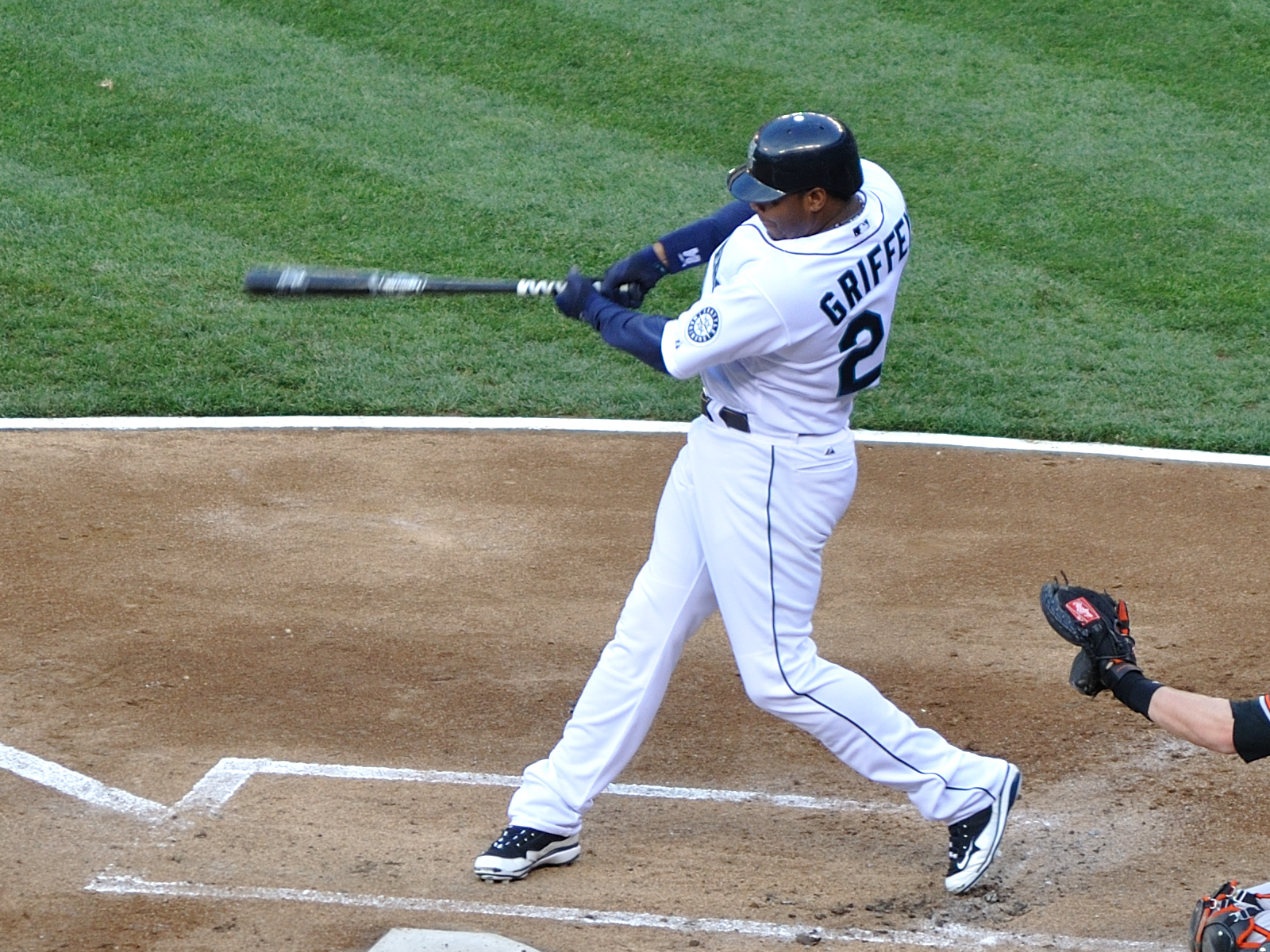
- Mayweather vs. McGregor: This Is What Truly Happened - August 30, 2017
- Seattle Seahawks Free Agent Preview - January 22, 2016
- Seahawks-Panthers Preview - January 15, 2016
[author image=”https://www.the3pointconversion.com/wp-content/uploads/2015/07/8D8CA17E-6A91-4B89-9C1C-353F7FB01415-e1437708682272.jpg” ] Lee Vowell @LeeVowell [/author]
The list of first-time Major League Baseball Hall of Fame-hopefuls was announced last week. There are 15 players who make their initial appearance on the ballot. The median career WAR for players already in the Hall of Fame is 59.3, so that will be important when looking at who might be voted in, except for closers. Here is a look at who is making their first appearance on the ballot and what their chances might be to actually get elected.
Ken Griffey Jr.
Stats: Games: 2,671; AB: 9,801; Runs: 1,662; Hits: 2,781; HR: 630; RBI: 1,836; BA: .284; OBP: .370; SLG: .538; SB: 184; Career WAR: 83.6
The first-half of Griffey’s career ranks with the best of all-time. After leaving the Seattle Mariners, however, he did not produce as expected. Perhaps for a player who was injured so often, those expectations were too high. Still, for a player with extraordinary offensive statistics to go along with 10 Gold Gloves, Griffey should be voted in by a fickle Baseball Writers Association of America the first time he is eligible.
Chance of being voted in this year: 95% (because no one ever gets 100%)
Troy Glaus
Stats: Games: 1,537; AB: 5,410; Runs: 889; Hits: 1,375; HR: 320; RBI: 950; BA: .254; OBP: .358; SLG: .489; Career WAR: 37.9
Glaus was a four-time All-Star, but the most votes he ever got for Most Valuable Player ranked him 30th in 2006. Glaus was a better-than-average major league player, but has no chance of making the Hall ever. His career WAR is far too low, and a player who never finishes in the top-ten of MVP voting in any year will never accumulate enough votes to be a Hall honoree.
Chance of being voted in ever: 0%
Jim Edmonds
Stats: Games: 2011; AB: 6,858; Runs: 1,251; Hits: 1,949; HR: 393; RBI: 1,199; BA: .284; OBP: .376; SLG: .527; Career WAR: 60.3
Edmonds is an interesting case. Only once did he finish in the top five of MVP voting, in 2004, but his career WAR is higher than the Hall median. Plus, he has a high on-base percentage. The best part about his game, though, was his incredible skill in centerfield. He won seven Gold Gloves, and probably should have won more. Still, one might be hard-pressed to find many people who would ever say that Edmonds was one of the top-five players in the game for any length of time in his career, and the BBWAA goes a lot by the eye-test. That is why Edmonds most likely will never get in.
Chance of being votes in this year: 0% (expect him to possibly get 50% instead of the needed 75% this year). Chance of being voted in ever: 20%.
Jason Kendall
Stats: Games: 2,085; AB: 7,627; Runs: 1,030; Hits: 2,195; HR: 75; RBI: 744; BA: .288; OBP: .366; SLG: .378; SB: 189; Career WAR: 41.5
Kendall played 15 seasons and was a three-time All-Star. If he had stopped playing after ten seasons, he might have had a better chance of making the Hall. Most of his career WAR (30.5) was accumulated during that time. Kendall was one of the better catchers in the league early in his career, but he is not worthy of being in the Hall.
Chance of being voted in ever: 5%
Trevor Hoffman
Stats: Saves: 601; ERA: 2.87; WHIP: 1.06; SO9: 9.4
Billy Wagner
Stats: Saves: 422; ERA: 2.31; WHIP: 0.998; SO9: 11.9
We are really beginning to get into the time of closers with Hall voting. Hoffman is second all-time in saves behind New York Yankees great Mariano Rivera. Wagner is nowhere near that number, but his raw stats are better than Hoffman’s. The question becomes are closers worth Hall recognition? Certainly Rivera, against whom all closers will be measured from this point on, is worthy, but he had incredible numbers both in the regular season and postseason. That is where the distinction between Hoffman and Wagner versus Rivera becomes great.
Rivera’s postseason numbers are as follows:
Wins: 8, Losses: 1, ERA: 0.70, Saves: 42, K: 110, BB: 21, WHIP: 0.759
Hoffman’s postseason numbers:
Wins: 1, Losses: 2, ERA: 3.46, Saves: 4, WHIP: 1.231
Wagner’s postseason numbers:
Wins:1, Losses: 1, ERA: 10.03, Saves: 3, WHIP: 1.971
Obviously, Rivera had many more chances in the postseason than Hoffman and Wagner, but he also produced better. What closers do in the postseason becomes more important as far as Hall-induction than any other position. Hoffman has terrific regular season numbers, better than Wagner’s in many ways, but both pale in comparison to Rivera and that will hurt them in Hall voting.
Chances Hoffman is ever voted in: 70%
Chances Wagner is ever voted in: 20%
Other players who appear for the first time on the Hall of Fame ballot, but who have no chance of ever being voted in, include Mike Hampton, Luis Castillo, Randy Winn, Garret Anderson, Mike Lowell, Mark Grudzielanek, Mike Sweeney, David Eckstein and Brad Ausmus.
This will be a good year for holdovers, possibly. The 3 Point Conversion will take a closer look at those players next week.






